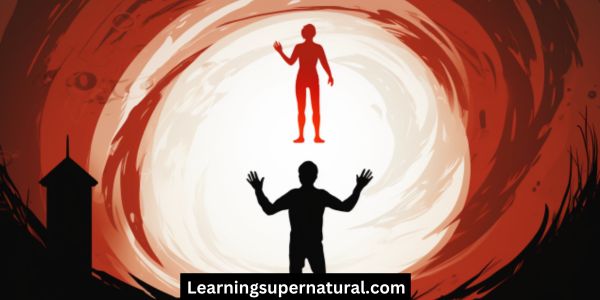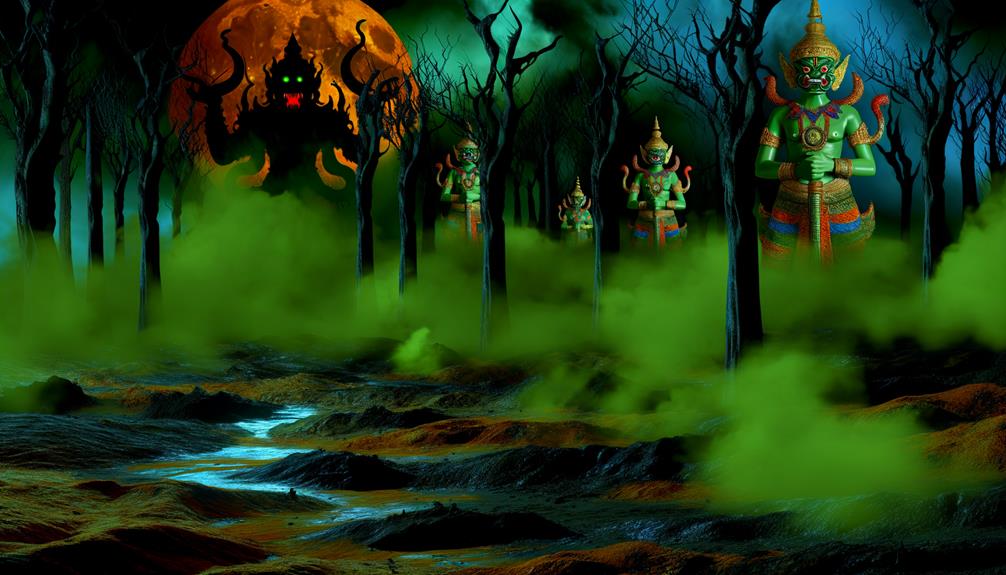Exorcism is an ancient practice with roots in many cultures and religions. Despite its use for thousands of years, there are still risks associated with it that can’t be ignored.
This article will discuss the side effects and controversies surrounding exorcisms today, providing a comprehensive look at this complex topic.

Exorcism has been used to expel evil spirits believed to possess people since ancient times.
Though the rituals vary greatly across different religious traditions, they all involve spiritual intervention as a means of healing physical or psychological ailments.
While some view these practices as beneficial, others argue that exorcisms come with great risk, both physically and psychologically.
In this article we’ll explore those risks and why they’re controversial in modern society.
History Of Exorcism
Exorcism has a long and complex history with spiritual significance, embedded in various cultural norms. It is believed to be an ancient practice that dates back thousands of years, emerging from religious traditions around the world.
Exorcisms are typically performed by priests, shamans or other figures of authority within their respective faith who are thought to have special powers or insight into the supernatural realm.
The ritual itself involves expelling evil spirits from individuals who have become possessed and allowing them to reclaim control over their body and mind.
The purpose of exorcism was often viewed as purifying one’s soul from demonic influences which could lead them astray from righteous paths.
Despite its traditional roots, modern forms of exorcism remain deeply controversial due to potential risks associated with it such as physical harm and psychological trauma.
With this in mind, it’s important to understand more about types of exorcisms before making any decisions on whether they should be practiced at all. Moving forward then…
Types Of Exorcisms
The ancient practice of exorcism has been around for centuries, invoking spiritual beliefs to rid people of demonic possession.
Of all the mysterious spiritual forces that have ever captivated humanity’s imagination, none is more powerful and enigmatic than exorcism.
Imagining a person being freed from an evil spirit always brings about dramatic images—a priest chanting with a crucifix in one hand while oil is splashed on the other; a desperate soul shaking uncontrollably as they plead for release from some unseen force.
These visuals represent different types of exorcisms that vary across religions and cultures:
- Christianity: Here, faith-based rituals are used to expel demons. Prayers, holy water, and Bible readings are common actions taken during this type of exorcism.
- Islam: This religion typically uses prayers and Quranic verses to invoke Allah’s help in banishing any negative spirits or entities present.
- Hinduism: Techniques such as meditation, mantras recitation, and offerings may be employed here. Additionally, Hindu priests use their own special incantations to drive away unwanted supernatural presences.
The potential physical risks associated with these practices can range depending on the individual’s level of susceptibility to suggestion or stress levels due to prolonged religious observance involved–something which should not be discounted by anyone considering an exorcism ritual.
Potential Physical Risks

Exorcism is the process of evicting an evil spirit from a person or place. While it has been practiced for centuries, there are risks and controversies associated with this religious practice.
There are potential physical risks that may arise when engaging in an exorcism ritual.
These risks include spiritual trauma caused by the presence of supernatural dangers while attempting to expel demons or other entities.
Physical injuries can also occur due to struggling against any entity as well as exhaustion resulting from long rituals.
In addition, some people have reported medical conditions after being exposed to paranormal activities during an exorcism procedure, such as anxiety and depression which could lead to further health issues later on if not properly treated.
It is important to note that these incidents are rare but still possible depending on the individual’s experience level and mental state prior to beginning the ritual.
With all this in mind, potential psychological risks should be taken into consideration before performing an exorcism.
Potential Psychological Risks
Research has found that over 80% of people who practice exorcisms believe they have a positive effect on their clients.
While the spiritual nature of this ritual cannot be denied, there are potential psychological risks involved with it as well.
Many individuals undergoing an exorcism may suffer from trauma associated with the experience and some form of medication or healing is necessary in order to help them cope with this trauma.
The debate over exorcisms is complex and often controversial; many religious believers insist that any risks incurred through its use can be mitigated by proper counseling and support before, during, and after the ceremony.
Still, skeptics argue that these rituals can cause significant harm to those who take part in them.
Ultimately, each individual must evaluate whether or not the benefits outweigh the potential risks when deciding whether or not to engage in such practices.
Transitioning into more research on this topic could provide further insight into how best to approach this subject going forward.
The Debate Over Exorcisms

The potential psychological risks associated with exorcisms are well-documented, but the practice is still widely practiced in many religious traditions. Despite being steeped in supernatural beliefs and a long history of religious tradition, there has been much debate over whether or not they should be conducted at all.
Most agree that if an individual is having severe mental health issues, then any type of exorcism – whether traditional or modernized – could potentially cause more harm than good. However, those who believe in the power of exorcisms argue that it can help to bring peace and solace to individuals dealing with spiritual distress.
Proponents of exorcisms point out their therapeutic benefits for individuals suffering from deep emotional trauma caused by paranormal activity, arguing that when performed correctly these rituals have helped people find inner healing and closure.
On the other hand, some skeptics view them as outdated superstitions rooted in fear and ignorance while others insist they represent a form of coercion which can lead to further psychological damage.
Whatever one’s stance may be on this subject, it is clear that both sides must work together to ensure that only safe practices are used when performing such rituals.
Frequently Asked Questions [FAQs]
What Are The Legal Implications Of Performing An Exorcism?
The legal implications of performing an exorcism often go overlooked and unaddressed, but they are incredibly important to consider.
While the supernatural law is unclear, those who attempt to perform an exorcism must do so with caution- failing to recognize the spiritual dangers associated can have serious consequences.
To make matters worse, this process occurs outside of any existing regulations which could protect both parties involved in these rituals.
As such, it’s paramount that all potential risks and controversies be taken into account before engaging in any form of exorcism.
All things considered, a wise proverb comes to mind: “forewarned is forearmed”; if you’re going to perform an exorcism, always consider the possible legal repercussions first.
Are There Any Special Qualifications Or Certifications Required For Someone To Perform An Exorcism?
When someone is considering performing an exorcism, there are some important questions to ask.
Are there any special qualifications or certifications required? Generally speaking, no—the practice of performing exorcisms does not require any particular certification or license.
However, some religious organizations may require a person to have certain pastoral counseling qualifications in order for them to perform the ritual.
It’s also important to note that many experts suggest psychological treatment should be considered instead of attempting an exorcism.
Are There Any Spiritual Or Religious Risks Associated With An Exorcism?
The idea of an exorcism may conjure visions of supernatural forces and paranormal effects, but what about the spiritual or religious risks associated with such a practice?
Though it is not widely discussed, there are some potential dangers that come with performing an exorcism. These can range from heightened anxiety to spiritual desolation, as well as increased vulnerability to malevolent entities.
Ultimately, one must weigh the inherent risks against any perceived benefits before deciding if engaging in an exorcism is wise.
Is There Any Scientific Evidence To Support The Claims Of Exorcisms?
The current H2 discusses if there is any scientific evidence to support the claims of exorcisms.
While some may believe that these supernatural risks have a legitimate basis, mental health experts often disagree and suggest that people who experience possession-like symptoms are more likely suffering from a psychiatric disorder rather than demonic forces.
Scientific research has been conducted on this topic but results vary greatly as many studies lack solid evidence or fail to draw firm conclusions about the existence of spiritual or religious risks associated with an exorcism.
What Is The Best Way To Prepare For An Exorcism?
Have you ever considered undergoing an exorcism?
If that thought has crossed your mind, then it’s important to prepare yourself mentally and spiritually.
Coincidentally, this is the best way to go about ensuring a positive outcome as well as minimizing any potential risks associated with the procedure.
To get ready for an exorcism, one should take time to confront their supernatural fears head on; this could be done through meditation or talking out loud in order to overcome any doubts they may have.
Additionally, it’s advisable to seek guidance from religious leaders who can provide advice and support throughout the process.
By following these steps of mental preparation, those interested in exorcisms will be able to approach them with confidence and clarity.
Conclusion
I have explored the risks and controversies around performing an exorcism.
It is clear that this practice has many implications; from legal, spiritual, religious and even scientific perspectives.
No matter how much we prepare for it, an exorcism can be a dangerous process with potentially severe consequences if not done correctly.
Exorcisms should only be performed by someone who holds the necessary certifications and qualifications to ensure safety for both the practitioner and those undergoing the ritual.
We must continue to research this ancient practice in order to better understand its power and potential side effects!



